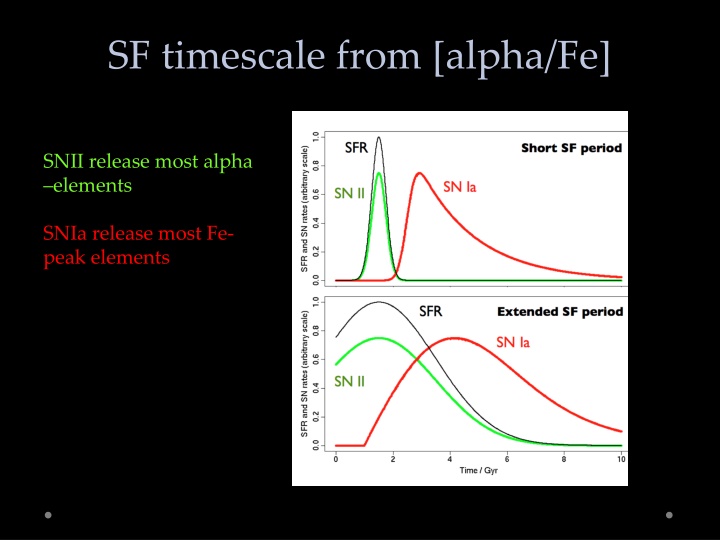
Insights into Galactic Chemical Evolution
Explore the intricate details of chemical evolution in galaxies, from the release of alpha elements to the differences at high metallicities. Discover proposed possibilities like variable IMF and differential retention of elements, alongside variations in alpha/Fe ratios and metallicity gradients in the local Universe. Delve into models and evolution scenarios shedding light on massive galaxy formation.
Download Presentation

Please find below an Image/Link to download the presentation.
The content on the website is provided AS IS for your information and personal use only. It may not be sold, licensed, or shared on other websites without obtaining consent from the author. If you encounter any issues during the download, it is possible that the publisher has removed the file from their server.
You are allowed to download the files provided on this website for personal or commercial use, subject to the condition that they are used lawfully. All files are the property of their respective owners.
The content on the website is provided AS IS for your information and personal use only. It may not be sold, licensed, or shared on other websites without obtaining consent from the author.
E N D
Presentation Transcript
SF timescale from [alpha/Fe] SNII release most alpha elements SNIa release most Fe- peak elements
Other proposed possibilities (1) A variable IMF (2) Differential retention of Mg vs Fe in conjunction with galactic winds. That one or more varies systematically with mass give us clues about massive galaxy formation.
Variation of [alpha/Fe] with mass in local galaxies Thomas et al. 2005
The differences are larger at old ages
The differences are larger at high metallicities
[Z/H]=-1.49 [Z/H]=-0.66 [Z/H]=0.06 [Z/H]=0.40 [ /Fe] = 0.4 [ /Fe] = 0.0
[/Fe] = 0.4 [ /Fe] = 0.0
[/Fe] = 0.4 [ /Fe] = 0.0
[/Fe] = 0.4 [ /Fe] = 0.0
Evolution of the metallicity gradient in disk galaxies The issue of the time evolution of the metallicity gradient is far from being unsettled (e.g., Chiappini et al. 2001; Hou et al. 2000). Models of chemical evolution: the difference is the efficiency of the SF and the nature of the material (primordial or enriched) falling form the halo.
Evolution of the metallicity gradient with redshift: numerical simulations The evolution is basically due to the efficiency of the feedback Gibson et al. 2013
Evolution of the metallicity gradients: MW Friel et al. 2002 Magrini et al. 2008
Evolution of the metallicity gradient with redshift The evolution is basically due to the efficiency of the feedback Gibson et al. 2013
Poor resolution flattens the (gas-phase) metallicity gradient Yuan et al. 2013
But this is not true for the stellar metallicity gradients
